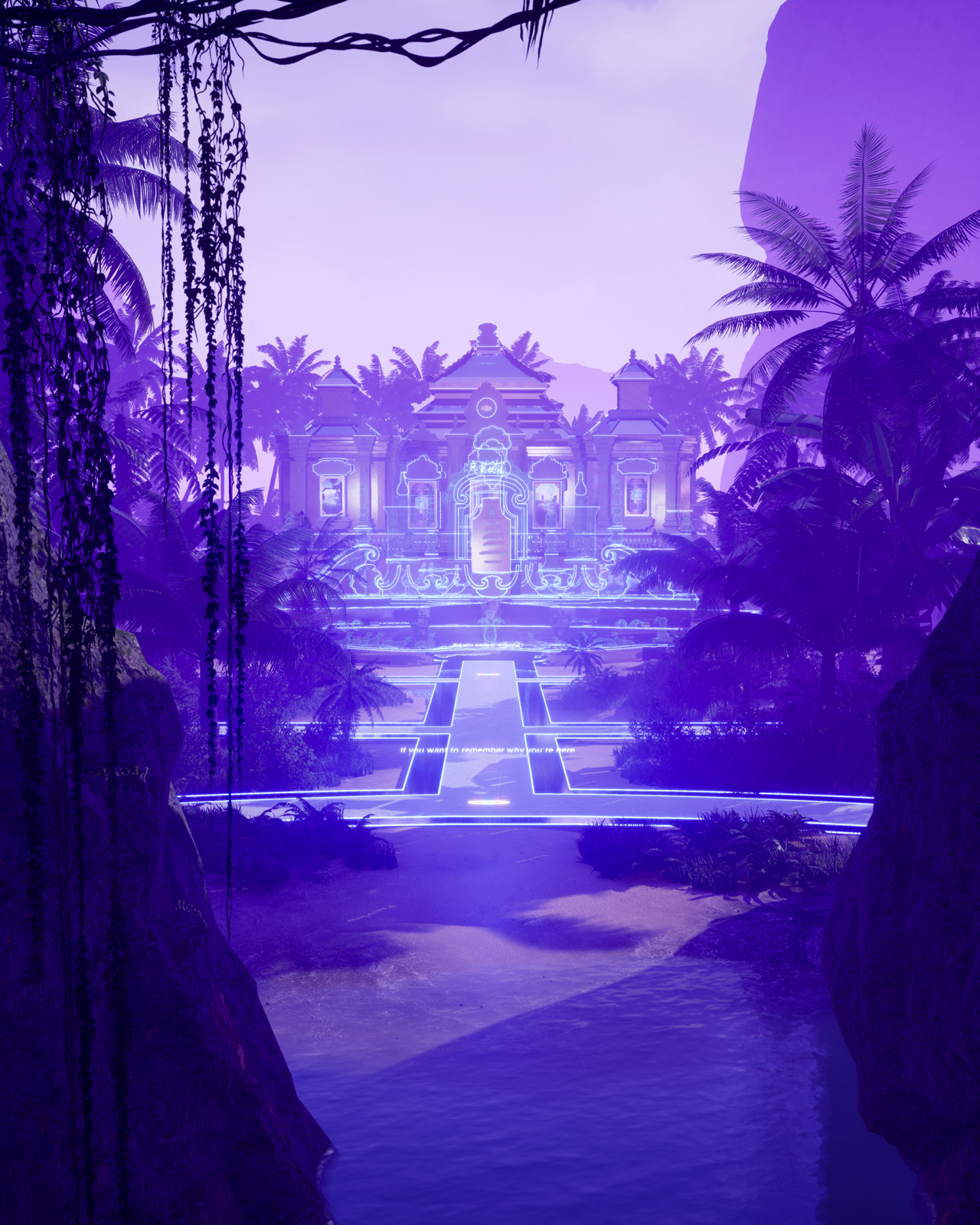NEPENTHE (SUMMER PALACE RUINS) | LAWRENCE LEK
Nepenthe (Summer Palace Ruins) is the latest edition of artist Lawrence Lek’s ongoing open-world game Nepenthe (2021–). By experimenting with the medium of video games in cinematic terms, he creates a narrative inside a magical island where technological and avant-garde architectures coexist with prehistoric tropical nature. The game continues his practice of ‘site-specific simulation’: the partial re-creation of existing places through virtual worlds. In this case, the adventure game contains the ruins of Beijing’s Old Summer Palace, infamously destroyed in 1860 by joint Anglo-French forces during the Second Opium War. Lek rendered the video by positioning the player’s gaze in the same manner as first-person RPGs (role-playing games). The eyes of the main character, and therefore our gaze, is the method by which we discover this mysterious island, accumulating clues and details on the protagonist’s life. During this journey, two automated voices, one male and one female, alternately address our hero with questions and observations.
Welcome to Nepenthe
You came here to forget.
Don’t you remember?
These mysterious phrases begin what could be considered a contemporary Bildungsroman, in which classical references alternate with digital experimentation: the title itself hints at the mythological legacy that inscribes the protagonist of Nepenthe as a hero in all respects. Nepenthe is, in fact, the elixir for forgetting used by Helen of Troy to soothe the pains of Telemachus after the departure of Ulysses. Nepenthe is an antidote against painful memories that one would like to forget. Moving in this digital space dominated by purple and blue tones, in which neon light bars merge into wild foliage, the movement and gaze of our protagonist become an example of a new conception of Romanticism applied to in-game cinematography. It is not difficult to imagine Nepenthe’s hero observing this defined, perfect and relaxing landscape for hours: the 3D modelling and environmental lighting carried out by Lek demonstrate attention to the tradition of picturesque landscape painting and the sublime aura of German Romanticism.
However, dark and mysterious zones begin to appear in this digital paradise: the voices start to point out that there have been disappearances and that, on closer inspection, it is not clear why we are here. The way back begins to seem increasingly obscure. The voice announces that we are facing the ‘Doorway effect’ — the phenomenon of having a mental block or short-term memory loss after we cross a threshold or gateway. In essence, the entire island of Nepenthe is a landscape that embodies the Doorway effect, and the player-hero willingly arrives there to forget their sorrows. In doing so, Lek blurs the distinction between a physical and virtual journey. We have already forgotten why we came to Nepenthe; more ominously, we cannot remember how to return home. The contemporary Bildungsroman implemented in this video game simulation turns upside down: the protagonist does not reach a growth or resolution of the mysteries. Instead, the plot thickens, the problems increase, and the dialogue with oneself seems increasingly distorted. Nepenthe is an invitation but also a warning.
Lawrence Lek
Nepenthe (Summer Palace Ruins), 2022, video still
© Lawrence Lek, courtesy Sadie Coles HQ, London.

